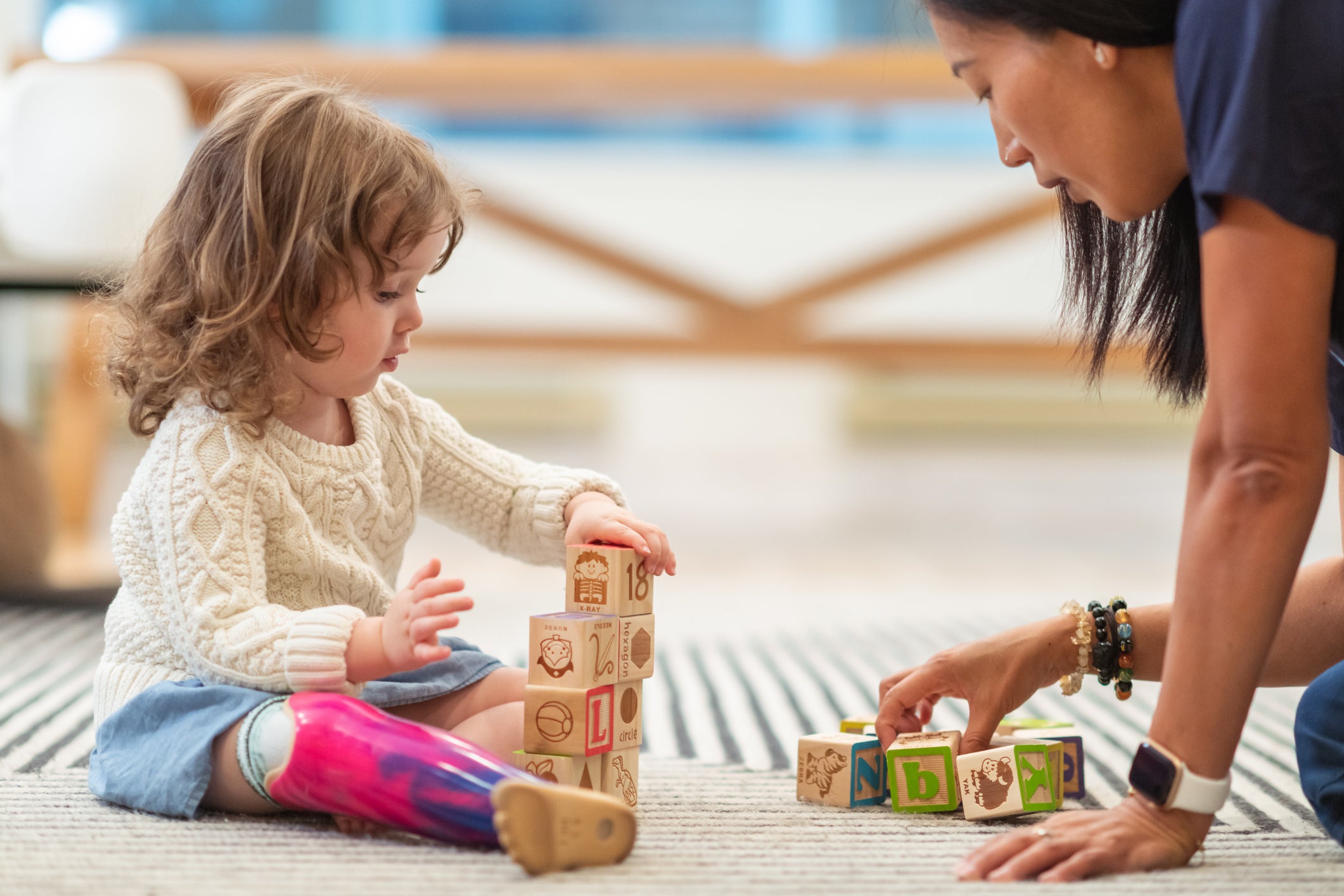Human-ness of Go-Baby-Go

Posted in Disability Intervention | Tagged Assistive Technology
by Alexa Asch, Adilene Meza, Ja’Chelle Ball, Kim Luong, Collin Holloway, and Kathy Martinez (GU)
What is human-ness? Is it what makes our personalities? The ability to make choices or use language? How about the ability to be mobile? When we are looking at the growth and development of young minds and bodies, we must relate these ideas to formulate a plan on how to address any impairments or delays in these areas. How do we respectfully help children with disabilities grow and learn? These are the questions we need to ask ourselves as the development of technology continues to grow and we use technology to enhance development, efficiency, convenience, etc.
The founder of Go-Baby-Go, Professor Cole Galloway of the University of Delaware, came up with the idea of Go-Baby-Go to facilitate mobility for children with disabilities. He wanted to create a low cost device that would provide children with disabilities such as cerebral palsy or other physical disabilities the opportunity to move independently. Each car is specialized for the child by the size, placement of handles or pedals, or even the pressure needed for movement. The idea is to get children moving in a way that is easy for them to become independent and social. Many testimonies from clients speak the praise of Professor Cole Galloway and his team. The researchers from Delaware now have volunteers in over forty different communities nationwide creating wheeled mobility devices for young children with physical disabilities.
There are undeniable benefits of Go-Baby-Go—it is fundamental to promoting independence for young children with disabilities and it provides a way for them to be included in child-like activities and a means to be social, which is crucial for development. However, it is also important to analyze the messages Go-Baby-Go sends in a broader disability studies perspective. There are two sides of independence from a disability studies perspective—while it is true that independence and agency are super important in disability activism, especially for deinstitutionalization, there is a common theme in ableist ideology based on capitalist notions that judges people based on their ability to be productive or independent. Humans should not be judged only on their ability to live and prosper independently. While Go-Baby-Go facilitates a positive form of independence for young children with disabilities, it is also possible that it promotes some of the harmful ideologies on independence that we try to avoid in disability studies.
We would like to draw on two disability studies scholars to support these ideas. Sami Schalk writes in “Critical Disability Studies as Methodology” that we need to “accept multiple ways of moving, thinking, communicating, and being in the world.” We worry that Go-Baby-Go’s mission is not to accept multiple ways of moving and being, but rather to erase and modify ways of moving to conform to social norms on mobility. Schalk writes of a “socially constructed system of norms which categorizes and values body-minds based on concepts of ability and disability.” With Go-Baby-Go, the lack of ability to move independently creates disability. Ability and disability are mutually dependent. Schalk writes, “the marginalized space of disability exists around, and helps define the limits of a centered, privileged space of ability.”
Julie Avril Minich, another disability studies scholar, writes in “Enabling Whom? Critical Disability Studies Now” that disability studies should incorporate “scrutinizing not bodily or mental impairments but the social norms that define particular attributes as impairments, as well as the social conditions that concentrate stigmatized attributes in particular populations.” We worry that Go-Baby-Go scrutinizes the body impairments rather than the social norms surrounding ideas of ability and mobility and what it means for a child to move differently than others.
We think Professor Cole Galloway’s ideas to create devices to help children is important and helpful but hope he continues to look at more long term goals for the foundation in terms of disability activism as they continue to grow across the nation.
References
Minich, J. A. (2016). Enabling whom? Critical disability studies now. Lateral, 5(1).Schaik, S. (2017). Critical disability studies as methodology. Lateral, 6(1).
